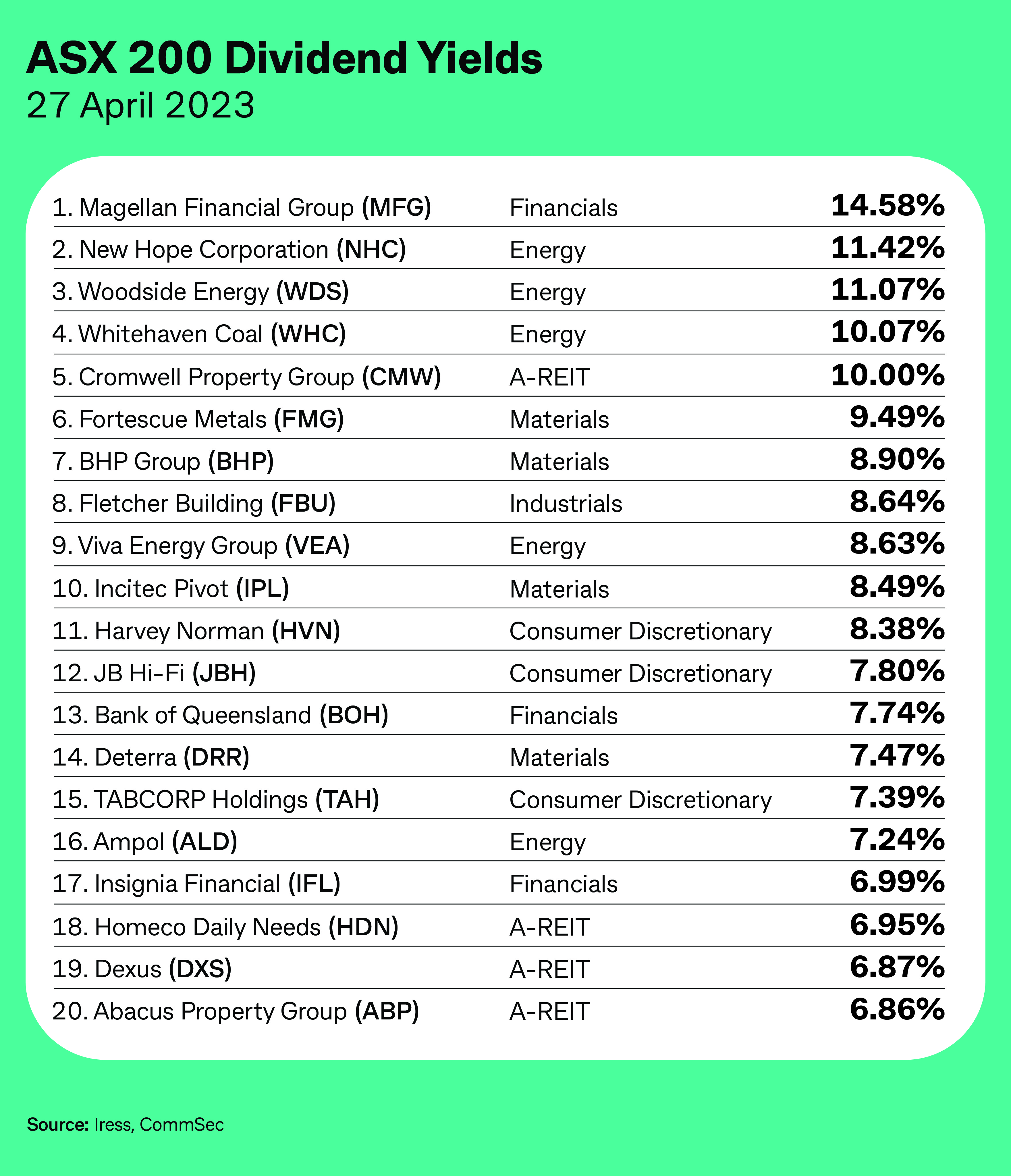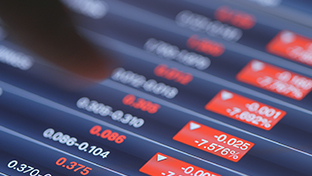 CommSec
CommSec
4 May 2023
Twice a year, listed companies are active in paying out dividends to shareholders. The first period is August-October when companies with a June balance date pay out ‘final’ dividends for the year to investors. And the other period is between February-April when companies pay out what is called ‘interim’ dividends.
Dividends are attractive in many ways for shareholders. Some investors take the dividends as cash to fund purchases, pay debt or put the proceeds in the bank.
Others may look to invest the payouts in other companies to provide some more diversification into their portfolios. And still other investors may look to reinvest the funds into the company providing the dividend payout.
It is understandable that companies that are perceived as regularly paying the highest dividends are keenly sought after by investors, particularly over the past 18 months where growth-orientated shares have come under pressure with investors seeking the safety of dividend payers.
The hard part is working out what is a ‘good’ dividend? A dividend of $1.00 a share may seem low, but the important thing is to compare it with the company’s share price. If the share price is $5 a share, then the return or yield ($1/$5) expressed as a percentage is quite attractive at 20%. But the return clearly would be far less attractive if the company’s share price was $100 a share.
To get a sense of what is a ‘good’ dividend yield, if we look the average yields of all S&P/ASX 200 companies over the past decade through to April 27 2023, it is 4.1%. In fact, the average over the past 20 years was also 4.1%. And currently the average yield of ASX 200 companies is 4.4% - only slightly above the ‘normal’ or average.
If we rank the top ASX 200 companies, the company with the highest historic yield is financial firm, Magellan Financial Group (MFG), with a current return of 14.6%. Second is coal producer New Hope Corp. (NHC, 11.4%), ahead of Woodside Energy (WDS, 11.1%), Whitehaven Coal (WHC, 10.1%), Cromwell Property (CMW, 10.0%) and Fortescue Metals (FMG, 9.5%).
Overall, 166 of the ASX 200 have paid a dividend of sorts over the past year and therefore have a dividend yield or return on investment. And 69 of the companies have a dividend yield above the longer-term average.
The key question is what is driving the returns of our top dividend payers.

As noted above, the highest dividend yield is maintained by fund manager Magellan. It paid of return of 46.9 cents on March 8 this year and 68.9 cents in September last year. When expressing the dividend of 115 cents a share (rounded) over the share price of 794 cents, the yield derived is 14.69%.
At face value that yield is super-attractive. But note that the share price has been falling over time with the stock’s valuation under pressure amid continued fund outflows due to challenging market conditions. If we went back two years ago when MFG was $45 a share, the dividend yield was 4.9%.
And that highlights two key points for investors. What is the share price likely to do over the next year and can investors expect dividends to be maintained over time. While the share price can’t be predicted with certainty, note that MFG has consistently paid dividends over the past 11 years. Of course, past behaviour is no guarantee of future behaviour but the company has been a consistent dividend payer over time.
Companies like CMW and Harvey Norman (HVN, dividend yield 8.4%) have also experienced lower share prices over the past few years, boosting their dividend yields.
That said, commentators note that real estate investor and fund manager Cromwell is “de-risking” its business. And Harvey Norman is regarded as having a relatively attractive valuation compared to its retail rivals when accounting for its property portfolio.
Of other companies with high dividend yields – WDS, NHC, WHC and FMG – share prices have been mixed over the past few years. But profits, and in turn dividends, have been boosted by soaring commodity prices.
The question for investors is whether gas, iron ore and coal prices can remain high in coming months, supporting not just profitability but dividends. While much will depend on Chinese demand and supply constraints from Russia’s invasion of Ukraine, regulatory risks in Australia may also influence sentiment.
The Australian government recently announced plans to curb the development of new fossil fuel projects, while the Queensland government has also recently implemented a 40 per cent tax on coal producers when prices hit more than $300 a tonne.
Overall, it is clear that dividend yields cannot be analysed in isolation. The factors driving company share prices, profitability and thus dividends have to be scrutinised.
Ideally, investors want to see higher profits driving higher share prices, therefore providing the best scope for sustainably high dividend payouts in the future.
The company’s policy on the proportion of profits ascribed to payouts is a further complication for investor research. If the company sets the ratio too high, then it may not be investing enough. A ratio too low, then growth is likely to be favoured over dividends. Investors need to be comfortable with the strategy adopted and the implications for future payouts.








